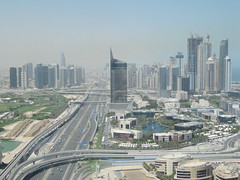Using article “Permanent Impermanence” by Syed Ali from the most recent issue of Contexts, Graduate Student Editorial Board member Shannon Golden offers our blog these ideas for use in the classroom. The full text of this article is available for free online!
This article would be great for a class or unit on immigration, globalization, or world cities.
——————————————————————-
1) For a class that has covered immigration policy:
-Compare and contrast immigration and citizenship policy in Dubai with that of other immigrant-receiving countries, such as the U.S., Japan, Australia, Canada, or western European countries.
-Do you agree with the author’s conclusion that Dubai’s policy may represent the future?
2) To focus on the intersection of biography and social structure, the instructor could:
-Provide biographical/narrative case studies of several foreign workers in Dubai, one that would represent a blue-collar laborer, another middle class example, and an upper class professional. Ask students to develop a sociological analysis of these lives using info from the article, illustrating how social structures are experienced differently by different groups of people.
3) Suggested small group discussion questions:
-What are the strengths and weaknesses of Dubai’s immigration policies? What are the intended and unintended consequences?
-Who are the actors who have a stake in determining the policies? Who benefits from this system? Who loses in this system?
– Discuss the following concepts in relation to this article: power, citizenship, labor, home, rights, legality, belonging
– The author discusses Paul Krugman’s writing on “the Dubai effect”: “Writing in 2006, Krugman said that a guest worker program could amount to a dangerous betrayal of the United States’ democratic ideals. It would, he wrote, basically form an entrenched caste system of temporary workers whose interests would largely be ignored and whose rights would be circumscribed. Further, their wages would undoubtedly be less than those of people with greater labor market mobility, though the ripple effects of a glut of guest workers would be expected to lower wages for all workers in sectors where guest workers are “bonded” to their employers, Dubai-style.” (p.29) Do you agree with Krugman’s speculations about what would happen if the U.S. adopted similar policies to Dubai? Discuss the implications of such a change.
4) Have the students read one of the “recommended resources” and discuss its connection to this article.

